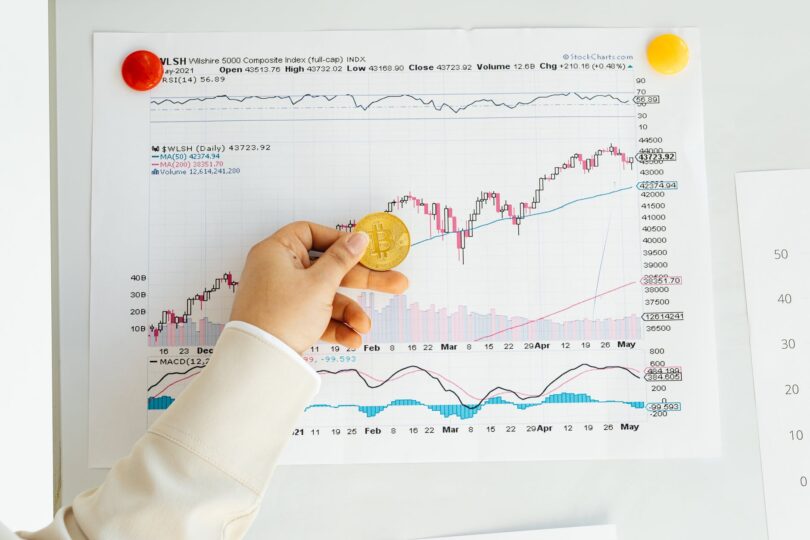A forex market is the substantial financial market in the whole universe, with more than 4 trillion traded on an average individual day. However, while there are various forex investors, some are genuinely successful. Many traders abort for the same reasons that investors fail in other asset types. Factors distinct to trading currencies can cause traders to expect greater investment returns than the market can consistently offer or take more chances than they would when trading in other vends. In addition, the tremendous amount of authority —the use of pawn capital to increase the possible return of investments—offered by the market and the relatively small amounts of edge required when trading currencies refute traders the opportunity to make various low-risk mistakes.
Outlining the following list will show you some most common reasons forex traders lose money, which also helps you make that elusive percent of traders win.
Key Takeaways
- Your first, safest importance shouldn’t be gained but somewhat not losing what you previously have.
- When you create a Forex trade, adhere to it for a period. Second-guessing yourself and confusedly switching back and forth will not get you far, either.
- Forex traders can drop money by forex social trading too aggressively, notably when bucking noticeable trends.
- It is fine to know when you’re respectful. Be pleased to cut your losses in a worst-case sketch eventually.
Forex Market Trading Hazards
Some definite mistakes can keep traders from achieving their investment aims. Below are some of the prevalent pitfalls that can invasion forex traders:
- Not Maintaining Trading Discipline: The huge mistake any trader makes with emotions to control the trading decisions. Becoming a famous forex trader means obtaining a few vast wins while facing many negligible losses. Experiencing many ensuing losses is challenging to hold emotionally and can test a trader’s confidence and patience. Trying to hit the market or giving in to greed and fear to cut the winners and let them lose the trader’s control. Overthrow emotion is accomplished by Trading within a well-constructed trading plan that aids in keeping going trading discipline.
source:https://www.pexels.com/photo/cup-iphone-laptop-macbook-6771607/
- Trading Without a Plan: Whether an individual trader or any other asset class, the primary step for achieving success is to make and go after a trading scheme. “Failing to plan is planning to fail” is a motto that carries true for various types of Trading. The successful trader works within a chronicle plan that holds risk management rules and enumerates the expected return on investment (ROI). Complying with a strategic trading plan can help investors conceal some of the most common trading pitfalls; if you do not have any project, you are selling yourself short in what you can achieve in the forex market.
- Keep Good Records: A trading journal is a fantastic way to gain knowledge from both successes and losses. Keeping a note of trading activity holds dares, profits, instruments, losses, and, perhaps most important, the trader’s own emotions and performance which can be incredibly profitable for thriving as a prospering trader. When systematically reviewed, a trading journal offers essential feedback that makes learning desirable. Destitute a trading journal and good record keeping, traders are likely to reach making the same mistakes, minimizing their noun fate of becoming successful and profitable traders.
- Having Unrealistic Expectations: No matter what everybody says, trading forex is not get-rich-quick collusion. Becoming proficient enough to assemble profits is not a sprint—it’s a race. Success requires recurrent efforts to master the blueprint associate. Swinging for the barricade or trying to force the market to provide abnormal returns usually results in traders endangering more capital than allowable by the potential profits.
- Poor Risk and Money Management: Traders should give more focus to risk management as they develop strategies. Some artless individuals will trade without abstaining and protection from using to stop losses and similar poly in fear of being interrupted out too early. At any given time, prosperous traders know exactly how much of their investment capital is at peril and are satisfied that it is convenient concerning the projected benefits. As the trading account becomes hefty, capital conserving becomes more critical. In concert with suitable position sizing, diversification among trading strategies and currency pairs can insulate a trading account from unfixable losses.
- Failing to Adapt to the Market: Before the market even starts, you should make a plan for each and every trade. Organizing scenario planning and analysis of the countermoves and moves for every budding market situation can significantly lessen the risk of massive, accidental losses. As the market changes, it gives out new risks and opportunities. No nostrum or foolproof “system” can resolutely prevail over the long term. The most successful traders acclimate to market changes and repair their strategies to integrate to them. Successful traders plan for low anticipation events and are rarely amazed if they come. They stay ahead of the pack through an adaptation and education process and constantly find creative and fresh ways to profit from the evolving market.
- Incorrect determination of exit points: Lack of Knowledge and experience can enforce a new trader in the market with aking all wrong exit points appraisal or not using them at all. Estimating the false lapse of time will sooner or later result in you losing out money, which also works both ways, moving out early or moving out late. If you exit too early, you may earn little profits but may waste the chance of getting more significant earnings in the champion trade. If you withdraw late, you may acquire wounds.
- Learning Through Trial and Error: Without hesitation, the most expensive way to learn to trade the currency markets is constant error and trial. Discovering the appropriate trading scenario by learning from your mistakes is not an energetic process to trade any market. Since forex is exceptionally offbeat from the equity market, the probability of new traders maintaining account-crippling losses is high. The most productive way to become a successful currency trader is to approach the experience of successful traders. This can be done through a mentor relationship with someone with an impressive track record or formal trading education. One of the best ways to impeccable your skills is to shadow a successful trader, especially when you add hours of rehearsing on your own.
- Treat Trading as a Business: It is essential to treat forex trading as a business and to remind that individual losses and wins do not matter in the short run. This is how the trading business performs over time that is essential. As Such, traders should also avoid becoming overly national about losses and wins and treat each as just another day of a standard office. Important. As with any business, forex trading obtains expenses, taxes, risks, uncertainty, and losses. Also, just as small businesses occasionally become successful overnight, neither do most forex traders. The setting, staying organized, setting realistic goals, Planning, and learning from both failures and successes will help establish a long, successful career as a forex trader.
source:https://www.pexels.com/photo/laptop-writing-macbook-technology-6771882/
- Indecisive Trading: Sometimes, you might find yourself tormenting from trading grief. This situation occurs when a trade that you open is not so profitable immediately, and you start saying that you have chosen the wrong direction. Then you shut down your business and revoke it, only to see the market go back in the inaugural order that you chose. In that case, you need to select a direction and stick with it. All that alteration back and forth will just make you consistently lose small bits of your account at a time until your financing capital is expended.
The Bottom line:
Most of the elements and factors that cause forex traders to fail are similar to those that invasion investors in other benefit classes. The easiest way to escape some of these pitfalls is to create a relationship with other successful forex traders, who teach and guide youth trading disciplines needed to the asset class, including the risk and money management ruling prescribed to trade the forex market. Then only will you be able to plan pleasantly and change with the return expectations that keep you from taking an enormous risk for the inherent benefit.





